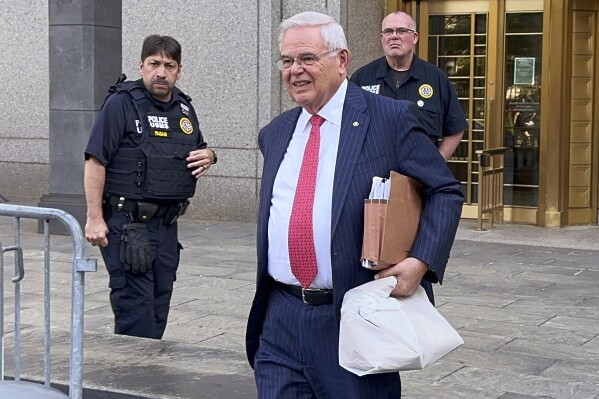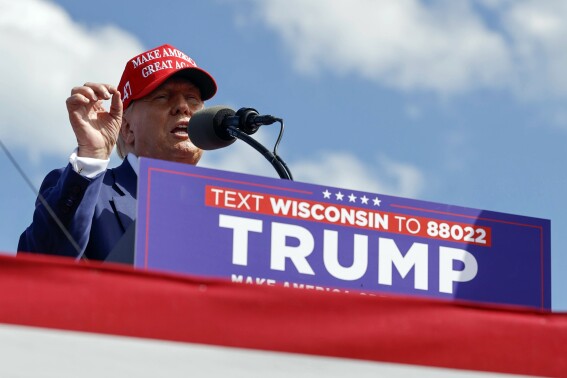If you want a good idea of what matters to each party - its deepest desires, its darkest fears - look at where it's spending money.
What it shows is a story of Labour spending big and spending everywhere, as it pursues a plausible supermajority, while the Conservatives retreat to fight for some of their heartland constituencies, and spend much less.
It shows the current state of play for all parties across the country. The map shows which is the biggest spender in each constituency - which parts of the country they're fighting to win, or not to lose.
The map was created by Who Targets Me (WTM), which tracks digital political advertising and has partnered with Sky News as part of our online campaign team.
"Our map of advertising activity shows where the parties have targeted their Facebook and Instagram ads in the last week," Sam Jeffers, executive director of WTM, says.
"In the same way careful observers track the seats party leaders visit during the campaign, the list of pages that are buying ads in each seat, helps to show whether parties think they can win there."
We can break the map down for each party too.
You can see the Lib Dems spending big on the '"A30 corridor in the South West", going for Conservative seats.
Both the Conservatives and the Greens are in a big spending battle in South Wales and the West Country.
Reform is targeting constituencies around southern Lincolnshire. And we can understand why parties are spending where they are if we compare to the predicted results from the latest YouGov MRP poll for Sky News.
We can show you how the digital war has been fought over the last few weeks - the ebb and the flow, if there has been one, between Labour and Conservative.
Labour first. They have spent by far the most this election: more than £2.7m since the start.
This is how their online campaign has spread geographically over the past six weeks.
"The map shows the scale of Labour's ambition, with them running ads across large swathes of the country, and outcompeting both the Conservatives and Reform in England and Wales, as well as the SNP across the central belt of Scotland," says Mr Jeffers.
Compare that to the Conservatives, who have spent only just over £1m on Meta and Google ads. And it has been dwindling: as the days go by, they're spending less money than their competitors in big swathes of the country.
Back to the big picture. Comparing the digital spend map to the latest YouGov MRP poll for Sky News reveals some interesting battlegrounds.
The Greens spent the most of any party in any constituency up to 17 June but the MRP suggests this will be a likely Conservative hold - with the Greens coming in second. They also occupy the next two slots in the spending rankings - Bristol Central and Brighton Pavilion - and the likelihood there is that they will win.
The next highest individual constituency spender is Reform, in Great Yarmouth - which the MRP predicts Reform will win.
But in Boston and Skegness, Reform's next highest spend, the YouGov MRP poll has a Conservative win.
But look at the Labour spend in general. As discussed, it is the biggest and most geographically widespread. And compare it to the MRP and you can see why: lots of constituencies are red, but lighter shades.
They're toss ups or marginal calls, with only the tiniest of margins between the parties. Hence why Labour is spending so big and in so many places.
Who Targets Me continually updates the map: Click here to view.
Mr Jeffers says that "it will be a fascinating tool for the final two weeks of the campaign, showing the parties' strategies in near real time, as they home in on the seats they hope to win or hold on 4 July.
What is an MRP poll?
You might come across the term MRP quite a lot in the coming weeks as we head towards the general election on 4 July.
An MRP poll – which stands for multilevel regression and post-stratification – is a type of poll that gets pundits excited because it draws from large amounts of data, including a large sample size and additional information like locations.
MRP polls first ask a large representative sample of people how they will vote. They then use that information of how different groups say they will vote combined with information about the sorts of people who live in different constituencies. This allows the pollster to estimate how people will vote in each constituency across the country - even when they may have surveyed just a few people, or even none, in some places.
This can then be broken down into smaller groups to see how voters in different areas say they plan to vote. Rather than making more generalised assumptions that everyone behaves the same way in different constituencies, it takes into account the fact that every constituency is its own race and local issues and trends may be at play.
What MRP can't do is account for very specific local factors - such as a hospital or large employer closing down in a constituency, or a scandal relating to a particular candidate.
It still involves a lot of assumptions and estimates – and some races are too close to call with any level of certainty. It also only gives a snapshot of people's opinions, and a lot can change over the course of an election campaign. However, it does give us a more nuanced idea about what the general election result could be than other more generic polls.
________________________________________________________________________________________________The Data and Forensics team is a multi-skilled unit dedicated to providing transparent journalism from Sky News. We gather, analyse and visualise data to tell data-driven stories. We combine traditional reporting skills with advanced analysis of satellite images, social media and other open source information. Through multimedia storytelling we aim to better explain the world while also showing how our journalism is done.
Disclaimer: The copyright of this article belongs to the original author. Reposting this article is solely for the purpose of information dissemination and does not constitute any investment advice. If there is any infringement, please contact us immediately. We will make corrections or deletions as necessary. Thank you.



